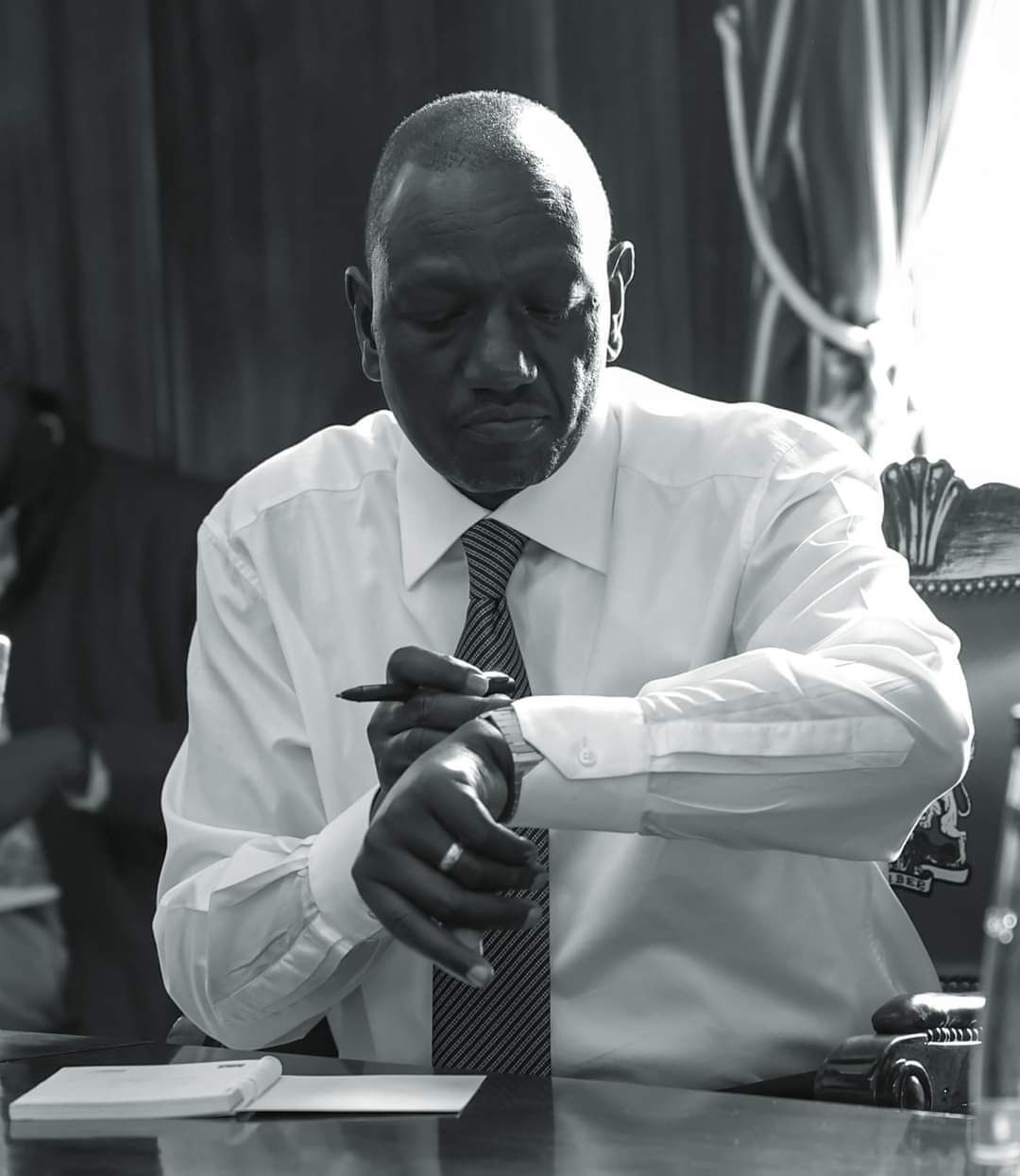Politics
President Ruto Sets Kenya On Path To First World Status
The President said Kenya must now choose ambition over fear and abandon what he termed the false comfort of low expectations.

Sh5 trillion blueprint anchored on education, agriculture, energy and infrastructure as government privatises state firms to fund ambitious transformation
President William Ruto has unveiled an audacious blueprint to transform Kenya from a developing nation to a first world economy by 2055, outlining a four-pillar strategy requiring at least Sh5 trillion in investment over the next decade.
In his third State of the Nation Address to a joint sitting of Parliament on Thursday, the President presented what he described as Kenya’s most ambitious development agenda yet, challenging the country to reject mediocrity and embrace the same discipline that propelled Asian Tigers like Singapore, South Korea and Malaysia from poverty to industrial powerhouses.
“We often speak of the Asian Tigers with reverence, making their rise seem like a miracle from a distant world. We marvel at how they journeyed from poverty to industrial powerhouses, from aid recipients to exporters of world-class goods,” Ruto said. “But these nations rose not because of special advantages but through leadership, discipline, strategic investment and an uncompromising rejection of mediocrity.”
The President said Kenya must now choose ambition over fear and abandon what he termed the false comfort of low expectations.
He insisted the country has the talent, resources and capacity to achieve developed nation status within a generation.
The transformation agenda rests on four critical pillars: massive investment in education and innovation; agricultural modernisation through irrigation; energy expansion; and transport infrastructure development.
On education and research, Ruto announced the creation of a dedicated State Department for Science, Research and Innovation. The government plans to increase national research funding from the current 0.8 percent to 2 percent of GDP, creating a Sh1 trillion research fund over the next decade to support innovation and commercialise Kenyan ideas.
The education budget has already increased from Sh490 billion in 2021 to over Sh700 billion this year, facilitating better infrastructure, more teachers and enhanced funding for universities and TVET institutions.
On agriculture, the President unveiled a nationwide irrigation programme targeting 2.5 million acres within seven years. This includes building 50 mega dams, 200 medium and small dams, and thousands of micro-dams across counties including Mandera, Isiolo, Machakos, Garissa, Kisumu, Laikipia, Embu, Turkana, Nyeri, Kilifi, Kiambu and Bungoma.
Ruto said Kenya cannot continue relying on rain-fed agriculture, noting that only 15 percent of the country receives adequate rainfall. The nation currently spends over Sh500 billion annually importing food, including maize, wheat, rice, sugar and edible oils.
“We cannot speak of prosperity while importing basic foodstuffs. This is not just economically unsustainable but a serious threat to national sovereignty,” he said.
The energy sector forms the third pillar. Although Kenya has an installed capacity of 3,300 megawatts, the firm capacity stands at only 2,300 megawatts due to the intermittence of solar and wind power. The President announced plans to generate an additional 10,000 megawatts through geothermal, solar, wind, hydro and eventually nuclear sources.
“Modern industries, data centres, artificial intelligence infrastructure, electric mobility and large-scale manufacturing all require reliable, abundant and affordable electricity,” Ruto said.
On infrastructure, the government has mapped 2,500 kilometres of highways for dualling and 28,000 kilometres for tarmacking over the next decade. The President confirmed that public-private partnerships will modernise Jomo Kenyatta International Airport, the Port of Mombasa and the Port of Lamu.
He also announced that the long-delayed Standard Gauge Railway extension from Naivasha to Kisumu and eventually Malaba will commence in January 2026, opening access to Uganda, Rwanda, Burundi and the Democratic Republic of Congo.
To finance this ambitious agenda without increasing taxes or public debt, the government will establish a National Infrastructure Fund underpinned by the Government-Owned Enterprises Bill, 2025, which Ruto signed into law on Friday.
The new law requires state corporations to operate as commercial entities, be self-financing and profit-making. It converts 65 existing companies and 18 statutory entities into public limited companies, including Kenya Broadcasting Corporation, National Cereals and Produce Board, Kenya Airports Authority, Kenya Ports Authority, Kenya Railways Corporation, Agricultural Development Corporation and the National Housing Corporation.
Privatisation of the Kenya Pipeline Company, expected to raise Sh100 billion, is already underway following National Assembly approval.
Presidential Council of Economic Advisers Chairman David Ndii clarified that the Infrastructure Fund will be capitalised through privatisation proceeds rather than new taxes or levies. For every shilling invested from privatisation, the government aims to attract ten shillings from pension funds, sovereign partners, private equity and development finance institutions.
The President cited successful models abroad, including Australia’s Future Fund, Singapore’s Temasek and the United Arab Emirates’ Mubadala, as proof that commercially run public investment funds can grow national wealth and deliver transformative infrastructure.
However, the ambitious plan faces significant challenges. Industrial actions by teachers, university lecturers and healthcare workers have raised questions about whether a nation struggling with such labour disputes can achieve first world status.
Opposition leaders have also dismissed the President’s vision as unrealistic, with Deputy President Rigathi Gachagua previously telling Ruto he promises Singapore but behaves like Somalia.
But the President remains defiant. Speaking in Samburu County earlier this month, he told critics: “We are going to shock you; we are going to surprise you because Kenya is going to move from a Third World to First World country in our lifetime.”
He dismissed opposition leaders as people with no plans, no agenda and no manifesto for the country, accusing them of specialising in division, tribal talk and hatred.
“You are the same people who said we cannot lower the cost of living, improve education and provide better healthcare. We want to tell them that the Government of Kenya does not belong to them; it belongs to all Kenyans,” Ruto said.
The President emphasised that Kenya’s transformation will require unity, discipline and sustained focus from leaders and citizens alike. He positioned the plan as a generational assignment whose success depends on collective resolve to follow through.
“Today, the evidence is clear, evidence of promises made and promises kept. In just three years, we have built not monuments of words, but foundations of progress,” Ruto told Parliament. “The decisions made today will shape the quality of life, economic stability and global standing of future generations.”
The President closed his address by urging the country to embrace a higher level of ambition, saying the proposed blueprint represents a turning point for Kenya’s long-term development. He argued that Kenya now stands at a pivotal moment, with an opportunity to break historical cycles of underinvestment and unlock the country’s full potential.
Also signed into law during Friday’s ceremony at State House were the County Governments Additional Allocations Bill, 2025, providing Sh70.6 billion in extra funding to counties; the Capital Markets Amendment Bill, 2025, modernising the licensing framework for capital markets intermediaries; and the Provisional Collection of Taxes and Duties Repeal Bill, 2025, removing an outdated colonial-era law inconsistent with the Constitution.
Kenya Insights allows guest blogging, if you want to be published on Kenya’s most authoritative and accurate blog, have an expose, news TIPS, story angles, human interest stories, drop us an email on [email protected] or via Telegram
-

 Investigations1 week ago
Investigations1 week agoBillions Stolen, Millions Laundered: How Minnesota’s COVID Fraud Exposed Cracks in Somali Remittance Networks
-

 News1 week ago
News1 week agoUS Moves to Seize Luxury Kenya Properties in Sh39 Billion Covid Fraud Scandal
-

 Investigations1 week ago
Investigations1 week agoJulius Mwale Throws Contractor Under the Bus in Court Amid Mounting Pressure From Indebted Partners
-

 News1 week ago
News1 week agoMAINGA CLINGS TO POWER: Kenya Railways Boss Defies Tenure Expiry Amid Corruption Storm and Court Battles
-

 Americas1 week ago
Americas1 week agoUS Govt Audits Cases Of Somali US Citizens For Potential Denaturalization
-

 Americas2 days ago
Americas2 days agoTrump Says US Needs Greenland For Its National Security
-

 Sports2 days ago
Sports2 days agoThe Easy Way to MSport Ghana: From Login to Your First Bet
-

 Sports2 days ago
Sports2 days agoWhat Makes Yesplay the Go-To Gambling Platform for South Africans?












